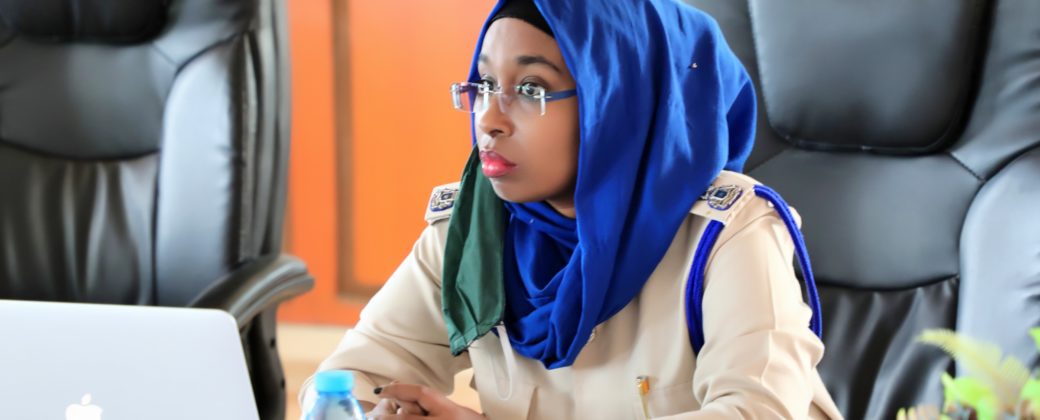The Office General Zakia Hussien
Brig. General Zakia Hussen Ahmed was promoted to a Brig. General and appointed as the Deputy Police Commissioner  on 15th August 2018 making her the first female to reach both milestones in the history of Somalia. A passionate activist from a young age, Gen Zaki has served in various sectors before relocating to Somalia where she moved to serve within the security and justice sector. Although friends and family describe her as a strong leader, Gen Zaki insists she “just want to make this world a better place”.
on 15th August 2018 making her the first female to reach both milestones in the history of Somalia. A passionate activist from a young age, Gen Zaki has served in various sectors before relocating to Somalia where she moved to serve within the security and justice sector. Although friends and family describe her as a strong leader, Gen Zaki insists she “just want to make this world a better place”.
Gen Zaki was born on 5th February 1984 in Mogadishu, Somalia. Her father was a medical doctor who at the tender age of 35 became private physician of the then President of Somalia Siyad Barre while her mother served as a senior officer at the Bank of Commerce while studying for her Master’s degree in Business Management. From a young age, Gen Zaki was encouraged to take education seriously and her parents enrolled her in school when she was only 4 years old. She spent her early years in the company of her grand-parents and was very close to her grand-father, a prominent traditional elder in Hiraan region and a politician having served part of the Leegada, a political movement campaigning for Somali independence from Italians and spent time in prison in Ethiopia as a result of his involvement. As both her parents and grand-parents were religious, Gen Zaki was also schooled in religious education, having memorised the Quran at the age of 15, and faith still plays a crucial role in her life.
At the age of six her family fled the civil war of Somalia and relocated in Sweden where she spent most of her childhood and compulsory education. At the age of 22 they relocated to London where she finished her higher education graduating with two Master’s degrees specialising in International Relations & Diplomacy. While at university she became a very active member of her Islamic Society and became the Vice-President of the society, at a time when it was a rarity for a female to serve such position. Gen Zaki describes her time at the Islamic Society as “character defining” as she juggled with full-time education, a part-time job to support herself and her duties as Vice-President of a religious society at a time where islamophobia was borderline pandemic. It was during this time she was exposed and got better understanding of the different factions of politically motivated Muslim groups and her efforts to bring these groups together in the Islamic society further sharpened her ability to understand and mitigate people’s differences and strongly held beliefs, skills that would become crucial in her future roles in Somali security sector.
While at university, Gen Zaki also began getting more involved in her native Somali community and was soon part of a socio-political global movement led by Somali youths with nationalistic agenda. Influenced and inspired by her grand-father’s struggle for independence and angered by the rise of jihadist ideologies within her community in the UK as well as back home in Somalia, she became a prominent activist within the Somali community and was invited to partake and speak at international conference on Somalia. As the movement had a global membership, Gen Zaki was provided with an opportunity to engage with like-minded young Somalis across the globe and she was struck by the common denomination all these youths shared; re-establishing rule of law and governance in their motherland. Following their lead, she decided to leave behind her comfortable and safe life in the UK and relocated to Somalia, despite not having a single family member present to assist her settle in a country she had fled at the age of 6.
In late 2012, Gen Zaki relocated to Somalia and got a job as Programme Manager of HIPS institute, Somalia’s first think-tank. During her time at the institute she got an opportunity to engage with the ‘stake-holders’ of Somali society including politicians, business and community groups. This further helped to shape her understanding of the inner circles and ideas that operate in her motherland. She did some work with the then serving Police Commissioner, which would come to inspire her to join the Somali police force, despite severe disapprovals and objections from her mentors and parents.
